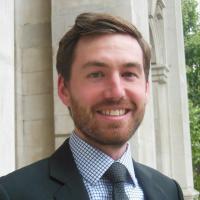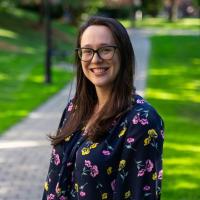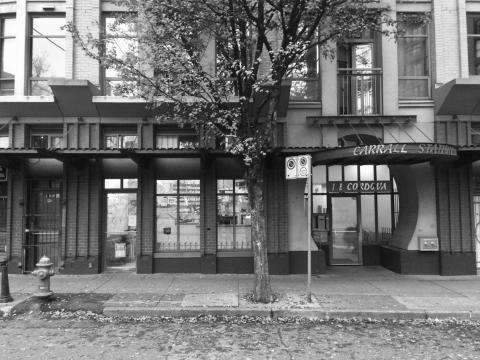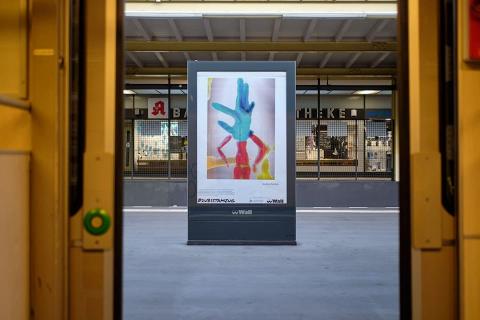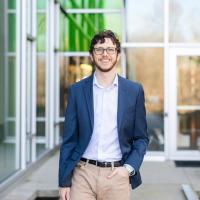Allard Hall is home to many research groups, composed of faculty, staff and students who collaborate in their areas of shared interest. While these groups represent disparate areas of inquiry, they share the conviction that we can accomplish more when we work together. Explore the research groups below, and see how they propose to address global challenges through collaborative efforts.
Intellectual Property, Technology, and Justice Research Group
UBC Faculty Members and Graduate Students
Affiliated Members
Research
Members of the Intellectual Property, Technology, and Justice Research Group engage in research that focuses on the following topics related to the research group theme:
- AI and social media
- Algorithmic justice
- Copyright law
- Copying culture
- Copyright law reform
- Equity
- Expert evidence
- Fair dealing and user rights
- Freedom of thought in the digital world
- Intellectual property and access to healthcare
- Intellectual property and human rights
- Intellectual property and international trade/free trade agreements
- Intellectual property and social justice
- Intellectual property and software
- Intellectual property and the conflict of laws
- Law and biosciences
- Legal constraints on creativity
- Neurotechnology
- Open Science
- Open scholarship
- Post-colonial piracy
- Property
- Technology and democracy
- Technology regulation
- Trademark law
- Video game law
Teaching
Members of the Intellectual Property, Technology, and Justice Research Group teach a range of courses that engage with these topics and their intersections. These courses have included:
- Intellectual Property and Human Rights (Reynolds, Law)
- The Capitalist Lives of Pharmaceuticals (Hayat, Anth)
- Bodies, Properties, Rights: Intersections of Medical Anthropology and Law (Hayat, Anth)
- Intellectual Property Law (Blom, Festinger, Reynolds, Law)
- Communications Law (Festinger, Law)
- Copyright Law and Social Media (with Rowan Meredith (Festinger, Law)
- Video Game Law (Festinger, Law)
- Media & Entertainment Law (Festinger, Law)
- AI, Law and Justice (with Robert Diab) (Festinger, TRU Law)
- The History and Politics of Information (Philip, iSchool/English)
- Open Science and Intellectual Property Learning Seminars for Early Career Researchers (Margot Gunning)
- Law and Neuroscience (Nadler, Ottawa Law)
- Joost Blom was a member of the International Law Association Committee on Intellectual Property and Private international Law. That committee’s final report was published as “International Law Association’s Guidelines on Intellectual Property and Private International Law (‘Kyoto Guidelines’)” (2021), 12 JIPITEC [Journal of Intellectual Property, Information Technology, and Electronic Commerce] 1-93. (He was the primary author for the text and commentary for Guideline 16 on Insufficient Grounds for Jurisdiction, at pp. 36-38.)
- Jon Festinger is the Founding Editor in Chief, with Gaetano Dimita and Marc Mimler, of the Interactive Entertainment Law Review, which has been published since 2018. Since 2024, he has been a member of the Editorial Board.
- Zahra Hayat, “Beyond the Market Monopoly: How Patents Act”, Medical Anthropology Quarterly Rapid Response Series (2021).
- Jon Festinger, Guest Editor, UBC Law Review Special issue, “AI and the Legal Profession” (Spring 2024).
- Reina (Roland) Nadler, “Antitrust as a Guardrail for Socially Responsible Neurotechnology Design” (2023), in Canadian Journal of Neurological Sciences , Volume 50 , Supplement s1: Special Issue in Neuroethics and Developing Brain Technology Contributions from the Pan Canadian Neurotechnology Ethics Consortium, pp. s42 - s45.
- Reina (Roland) Nadler, “Harmful uses of patentable neurotechnology: a new regulatory approach” (2024), in Nature Publishing Group UK, EMBO Reports, 25(5), pp. 2156–2161.
- Kavita Philip, “Keep On Copyin’ In the Free World? Genealogies of the Postcolonial Pirate Figure,” in Lars Eckstein and Anja Schwarz, Postcolonial Piracy: Media Distribution and Cultural Production in the Global South (Continuum Press, Bloomsbury Academic Publishing, 2014).
- Kavita Philip, "Seeds of Neo-colonialism? Reflections on Globalization and Indigenous Knowledge," in Capitalism, Nature, Socialism, Volume 12, No 2, Issue 46, June 2001, pp. 3-47.
- Kavita Philip, “What is a technological author? The pirate function and intellectual property,” in Postcolonial Studies, Volume 8, Number 2, 2005, pp. 199-218.
- Graham Reynolds, “Of Lock-Breaking and Stock-Taking: IP, Climate Change, and the Right to Repair in Canada” (2023), 101 Canadian Bar Review 31 (30 pages).
- Graham Reynolds, “Recognizing the Relevance of Human Rights: The Application of the Presumption of Conformity in the Context of Copyright” (2018) 31 Intellectual Property Journal 63 (21 pages).
- Zerkee, J., Savage, S., & Campbell, J. (2022). Canada’s Copyright Act Review: Implications for Fair Dealing and Higher Education. Journal of Copyright in Education & Librarianship, 5(1).
- UBC Centre for Climate Justice (Kavita Philip is Co-Director)
- UBC Centre for India and South Asia Research (Kavita Philip is a Member of the Executive Committee)
- UBC Emerging Media Lab (Jon Festinger is a member of the Steering Committee and Faculty in Residence)
- Oxford Intellectual Property Research Centre (Graham Reynolds is a Research Fellow with the OIPRC)
- International Neuroethics Society (Reina Nadler is a member of the Governance Committee)
- Neuroethics Canada (Margot Gunning and Reina Nadler are Graduate Research Assistants)
Housing Research Collaborative
Allard Law
UBC
HRC houses nationwide research projects focused on housing justice and policy, including the CMHC-funded Housing Assessment Resource Tools (HART) project and SSHRC and CMHC funded Balanced Supply of Housing (BSH).
The HART project is an award-winning research group that works toward evidence and data-based solutions to Canada’s housing crisis. Some of the tools developed by the team include:
- Housing Needs Assessment Tool: A census-based tool that measures core housing need and affordable shelter costs by income category, household size, and priority populations. Our methods help governments to set effective housing targets that will lift Canadians out of chronic housing need and homelessness.
- Land Assessment Tool: A mapping tool that assesses suitable public land for non-profit affordable housing, based on proximity to key services and amenities. It supports governments to effectively use land, including housing on top (of libraries, health centres etc.) to maximize deeply affordable homes.
- Property Acquisitions Tool:A policy-based tool that help prevent the loss of affordable housing through property acquisition by governments, non-profit housing providers and Community Land Trusts.
- Federal Housing Needs Assessment Template: a template developed with Housing, Infrastructure and Communities Canada (HICC) to support communities across Canada to satisfy the requirements of federal funding programs, like the Housing Accelerator Fund (HAF), the Canada Community Building Fund (CCBF), and the Permanent Transit Fund.
- BC Housing Needs Report Calculator: a calculator that has automated the overwhelming majority of provincial requirements for the BC Housing Needs Report, meaning communities in BC can focus on providing meaningful insight into their communities, not on procedural numbers and calculations.
- Upcoming Project: BC Public Lands Map: a comprehensive map of public lands across BC, including every level of government, which measures and assesses these lands for housing development.
BSH brings together academic and non-profit community organizations in Montreal, Toronto, and Vancouver to research barriers to affordable housing.

Other projects ongoing at the HRC include:
- Housing data and information access
- The meaning and application of the right to housing in Canada
- Mapping local government by-laws that affect the location of encampments
- The use of judicial review in cases involving homelessness
- The possessions of precariously housed people
- Van Wagner, Estair and Flynn, Alexandra (2024) "Human Rights Cities: Realizing the Right to Housing at the Municipal Scale," UBC Law Review: Vol. 57: Iss. 1, Article 7.
- Alexandra Flynn, “Social Control and Encampments: Shifting the Role of Shelters Through Judicial Review” (Social and Legal Studies, 2024).
- Alexandra Flynn, Joe Hermer, Caroline Leblanc, Sue-Ann MacDonald, Kaitlin Schwan & Estair Van Wagner, “Overview of Encampments Across Canada: A Right to Housing Approach” (Federal Housing Advocate, 2022).
- Nicholas Blomley, Alexandra Flynn & Marie-Eve Sylvestre, The rights of people living in encampments to their belongings.
- Alexandra Flynn, “The precedent for a federal leadership role in housing” in Policy Options (9 November 2023).
- Carolyn Whitzman & Alexandra Flynn, “Housing is a direct federal responsibility, contrary to what Trudeau said. Here’s how his government can do better” in The Conversation (31 July 2023).
- Jill Atkey, Lilian Chau, Nick Falvo, Alexandra Flynn, Penny Gurstein, Craig Jones, Greg Suttor, Carolyn Whitzman, Tomas Hachard and Kinza Riaz, “The Municipal Role in Housing” (Institute on Municipal Finance and Governance, University of Toronto, 2022).
For all BSH publications, visit: BSH Publications.
Law and Cities
The Law & Cities Research Group, based at the Allard School of Law, welcomes faculty members and graduate students from other disciplines who are engaged with law and cities.
Research Activities
The Law & Cities Research Group is a loose knit collection of scholars and students working to understand and explain the many ways that law and cities interact. Members of the Group work with several cross-cutting themes, including:
- Business Organizations & Entrepreneurial Activity
- Climate Change & Sustainability
- Colonialism & Reconciliation
- Democracy & Civic Participation
- Housing & Homelessness
- Indigenous Governance & Intergovernmental Relations
- Poverty & Inequality
- Property & Land Use Regulation
- Technology & Privacy
Members of the group organize seminars, speakers, workshops, and conferences.
Teaching Law & Cities
In addition to their diverse research activities, members of the Law & Cities Research Group teach a range of courses that engage extensively with cities and law. The list of recent offerings includes:
- LAW313 Legal History: Property and the City
- LAW343 Topics in Public Law: Law and the City
- LAW431 Condominium Law
Publications by group members are listed by year of publication under the cross-cutting themes.
at UBC:
in Canada:
- the Centre for Interdisciplinary Research on Montreal
- Massey College, Toronto
around the globe:
- the Urban Law Centre, Fordham University, New York City
- the City Futures Research Centre, UNSW, Sydney
Law and Humanities

Joel Bakan
Professor
Peter A. Allard School of Law

Brenna Bhandar
Associate Professor
Peter A. Allard School of Law

Carole Blackburn
Associate Professor
Department of Anthropology, UBC
Julen Etxabe
Assistant Professor, Canada Research Chair in Jurisprudence and Human Rights
Peter A. Allard School of Law
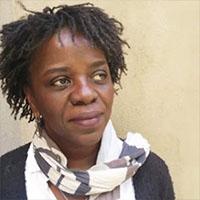
Denise Ferreira da Silva
Professor
Institute for Gender, Race, Sexuality and Social Justice, UBC

Mark Harris
Associate Professor
Institute for Gender, Race, Sexuality and Social Justice, UBC
Mary Liston
Associate Professor
Peter A. Allard School of Law
Michelle LeBaron
Professor
Peter A. Allard School of Law

Renisa Mawani
Professor & Canada Research Chair, Colonial Legal Histories
Department of Sociology, UBC
Law and Humanities is an interdisciplinary approach that emphasizes the cultural, literary, and imaginative aspects of law, without forgetting its ethical and political implications. As a field of research, law and humanities encompasses diverse areas of study, including law and literature, legal storytelling, law and film, law and language, critical race theory, feminist approaches to law, law and emotions, etc. In addition, law and humanities scholars seek to reflect on law as an embodied and sensorial practice and welcome experiential and creative pedagogies in the classroom, such as theatre-based teaching and the arts (painting, graphic novels, music, etc.)
In addition, members of the Canadian Network of Law & Humanities teach a range of courses that explore this intersection. Some recent offerings include:
- LAW300 Jurisprudence and Critical Perspectives
- LAW312D Law and Literature
- LAW312D Justice, Diversity, and Legal Legitimacy
Representative publications of our members are listed on the Canadian Network of Law & Humanities website.
- UBC Public Humanities Hub
- Groupe de recherche sur les humanités juridiques
- ANU Centre for Law, Arts and the Humanities
- Law and the Human Network, University of Kent
- Institute for International Law and the Humanities
- The Association for the Study of Law, Culture, and the Humanities
- Birkbeck Centre for Law and the Humanities
- Law, Literature and Humanities Association of Australasia
- European Network for Law and Literature











